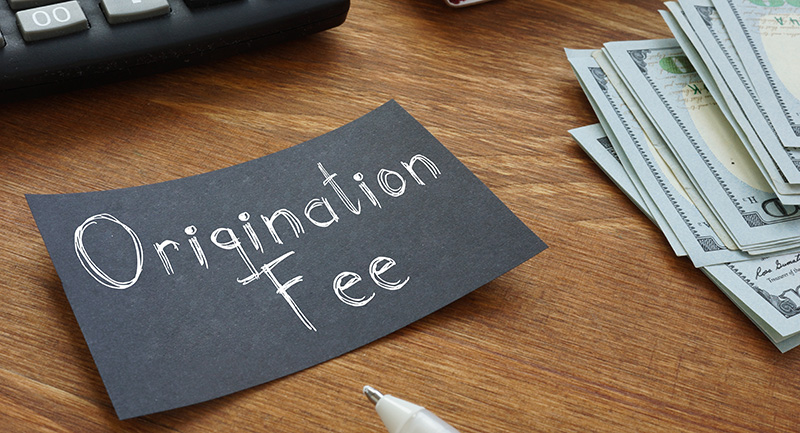Can I Deduct Origination Fees on My Taxes?
February, 02 2024 by Karen Thomas-Brandt, EA
The purchase of a home is an exciting time in anyone’s life! All the new memories you will make! All the new furniture you will buy! Oh…and all of the closing costs you will pay! You may wonder if any of those costs are deductible on your tax return. One cost that buyers often ask about is origination fees.
Deducting Origination Fees In Full
The deductibility of origination fees is dependent upon a few factors. The main factor is whether you itemize your deductions. Many taxpayers may find themselves itemizing their deductions for the first time when purchasing a new home! If you itemize your deductions on Schedule A (Form 1040) – instead of taking the standard deduction – you may be able to deduct your origination fees (also called points) paid on the purchase of your principal residence. We say “you may be able to deduct” because several other factors, or criteria, must be met. These factors are:
- The origination fees paid must be related to a mortgage used to buy, build, or improve your principal residence (which is the residence you use most of the time);
- Paying origination fees must be an established practice in the area where the loan was made, and the amount paid was typical in that area;
- You can prove that you or the seller paid the origination fees, and the amount paid is clearly listed on the settlement statement. Please note, if you paid the origination fees, you must have provided those funds at or before closing (in other words, you cannot use funds from your loan to pay the origination fees if you want to deduct the amount in full in the year paid). If the seller paid the fees, they are deductible to you as the buyer;
- The amount of the origination fees was calculated as a percentage of the mortgage, and
- You use the cash method of accounting for your taxes (this means that you report income in the year you received the income and deduct expenses in the year you paid the expenses).
To reiterate, all of the above conditions must be met for the origination fees to be deducted in full in the year paid. If you do not meet the above conditions, fear not; another option exists.
Amortizing Origination Fees
If you don’t qualify to deduct your origination fees in full, you may be able to amortize (or deduct) the origination fees over the life of your mortgage. For example, if you paid $3,000 for origination fees on a 30-year mortgage, you would deduct $100 ($3,000/30) each year for 30 years (or until the loan is refinanced). You can also amortize the origination fees you pay when you refinance a home mortgage for a primary residence or with the purchase of a second home. Furthermore, you may amortize your points if you do not benefit from itemizing your deductions in the mortgage’s first year (perhaps because the house was purchased late in the year and the interest paid during the year is minimal).
Let’s look at some examples.
Example 1: Adam and Joanne bought their first home in January 2022. They paid 2% in origination fees on their $300,000 mortgage (or $6,000) for a lower interest rate. They paid $7,000 out-of-pocket at closing to cover the origination fees and other closing costs. When Adam and Joanne file their 2022 tax return (in 2023), they can deduct the $6,000 origination fees on Schedule A (Form 1040), provided their total itemized deductions exceed the standard deduction of $25,900.
Example 2: Alex bought his first home in November 2022 and is filing as single. He paid three points ($4,500) to get a 30-year $150,000 mortgage and made his first mortgage payment on Jan. 1, 2023. For 2022, his itemized deductions — including points paid — total only $5,700. This is less than his standard deduction. Since his standard deduction is more, he can amortize (deduct) his points over the life of the mortgage loan. While he won’t benefit from the amortization amount for 2022, he may benefit in future years when he can itemize his deductions.
Example 3: Bonnie has a mortgage and is amortizing the points she paid on the loan. In March 2022, Bonnie had $3,300 in points left to amortize and decided to refinance her mortgage with a new lender. Because interest rates were so reasonable, Bonnie chose not to pay any points with her new mortgage. When Bonnie files her 2022 tax return (in 2023), she can deduct the remaining $3,300 in points she had left on the old mortgage on Schedule A (Form 1040), provided her total itemized deductions exceed the standard deduction. Please note that if Bonnie had refinanced her mortgage with the same lender, she would not be able to deduct the remaining points from the old mortgage but would have to continue to amortize the points over the life of the new mortgage.
As with most tax questions, the answer to “Can I Deduct Origination Fees?” is not simple. But hopefully, you now have a better understanding of when you can and cannot deduct origination fees. And, as always, keep track of and document all your payments. This way, it will be less stressful when tax time comes around. Another way to reduce stress is to purchase Audit Protection from TaxAudit. Click here for more information.





